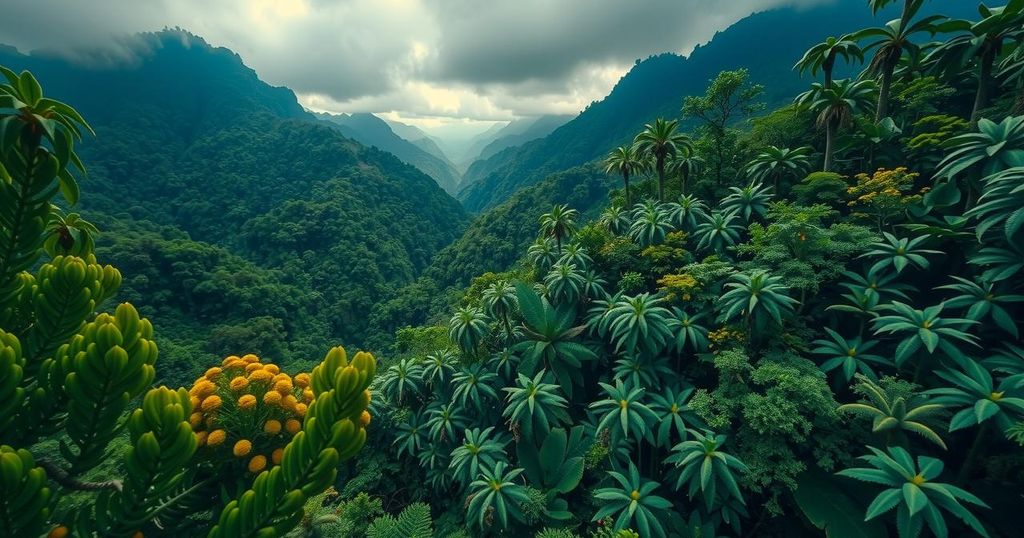Global Forests: Key Players in Biodiversity and Climate Change Mitigation

Forests globally are pivotal for biodiversity and climate regulation. Russia holds the most substantial forest area, primarily boreal forests, while Brazil’s Amazon rainforest is vital for its rich biodiversity, facing deforestation threats. Canada’s boreal forests demonstrate strong conservation commitments, and the U.S. features diverse forests under perennial risk from wildfires. China’s restoration efforts contribute significantly to these global dynamics. As ecotourism rises, sustainable travel practices are crucial for forest protection.
The world’s forests serve as a vital component of the planet’s ecosystem, providing substantial benefits for biodiversity, climate regulation, and carbon sequestration. According to the 2024 UN Food and Agriculture Organization (FAO) forest resources assessment, countries such as Russia, Brazil, Canada, and the United States host significant forest areas that are crucial for global ecological health. Russia, with its expansive boreal forests, is the foremost contributor, representing over 20% of the global forest cover, thereby playing a critical role in carbon storage and climate mitigation. Brazil’s Amazon rainforest is another key ecological area, encompassing 60% of the nation’s forests and exhibiting unparalleled biodiversity. However, this vital habitat is under threat from deforestation driven by agriculture, logging, and industrial practices. The Amazon’s ability to absorb carbon dioxide and produce oxygen is essential for global climate balance, making its conservation a priority for environmentalists worldwide. Canada’s boreal forests also represent a substantial part of the global forest landscape, covering nearly 9% of the world’s network. These forests are integral to wildlife habitats and carbon storage, aligning with Canada’s emphasis on conservation through protected areas and national parks. The United States features diverse forest ecosystems from Alaska to California, housing various species and requiring continuous preservation efforts due to wildfire risks exacerbated by climate change. Additionally, China has made strides in combating desertification and enhancing its forest cover through reforestation projects, which support both biodiversity and efforts against climate change. The emphasis on forest conservation has sparked a rising interest in ecotourism, where sustainable travel practices offer opportunities for adventure while protecting these critical ecosystems. Ultimately, awareness of the environmental significance of forests is driving a push for sustainable practices in both conservation and tourism, as regions rich in forest areas become popular destinations for environmentally-conscious travelers.
The significance of forests extends far beyond mere land cover, functioning as critical agents in the preservation of biodiversity and the mitigation of climate change. According to current evaluations, forested regions in countries like Russia, Brazil, Canada, and the United States contribute remarkably to the ecological landscape of the planet. These forests not only harbor a multitude of species but also engage in essential processes such as carbon sequestration and climate stabilization. Moreover, with the growing trend of ecotourism, forest conservation has gained traction in the global travel industry, impacting environmental and economic strategies in forest-rich nations.
In summary, the role of the world’s largest forests is fundamentally critical in combatting climate change, preserving biodiversity, and shaping global travel trends. Countries such as Russia, Brazil, and Canada contain vast forest areas that offer ecological benefits and promote conservation efforts. As the demand for ecotourism continues to rise, it will be essential to implement sustainable practices to protect these invaluable ecosystems while providing enriching experiences for travelers. The collective efforts toward forest conservation are vital for maintaining the health of our planet for future generations.
Original Source: www.travelandtourworld.com





